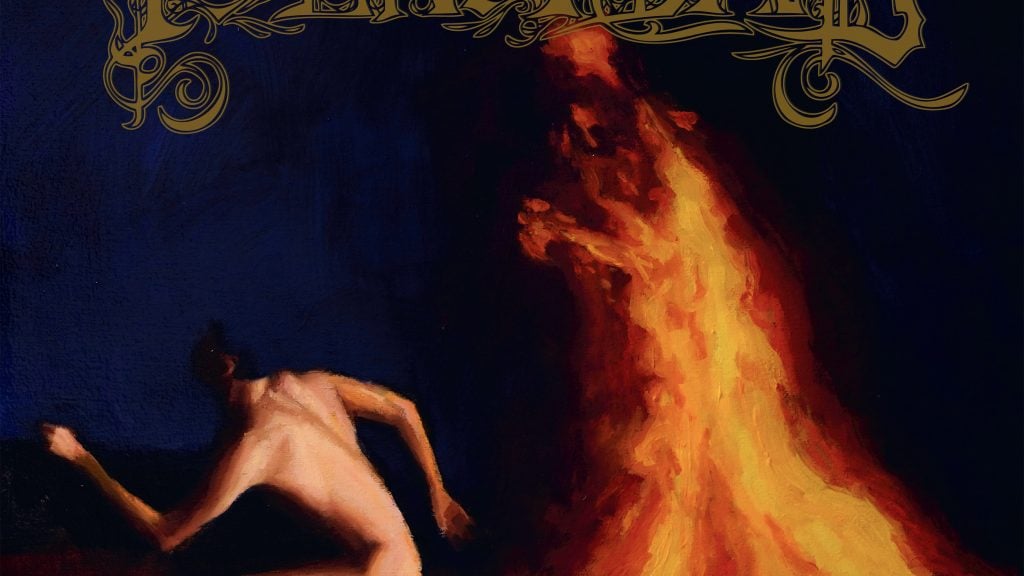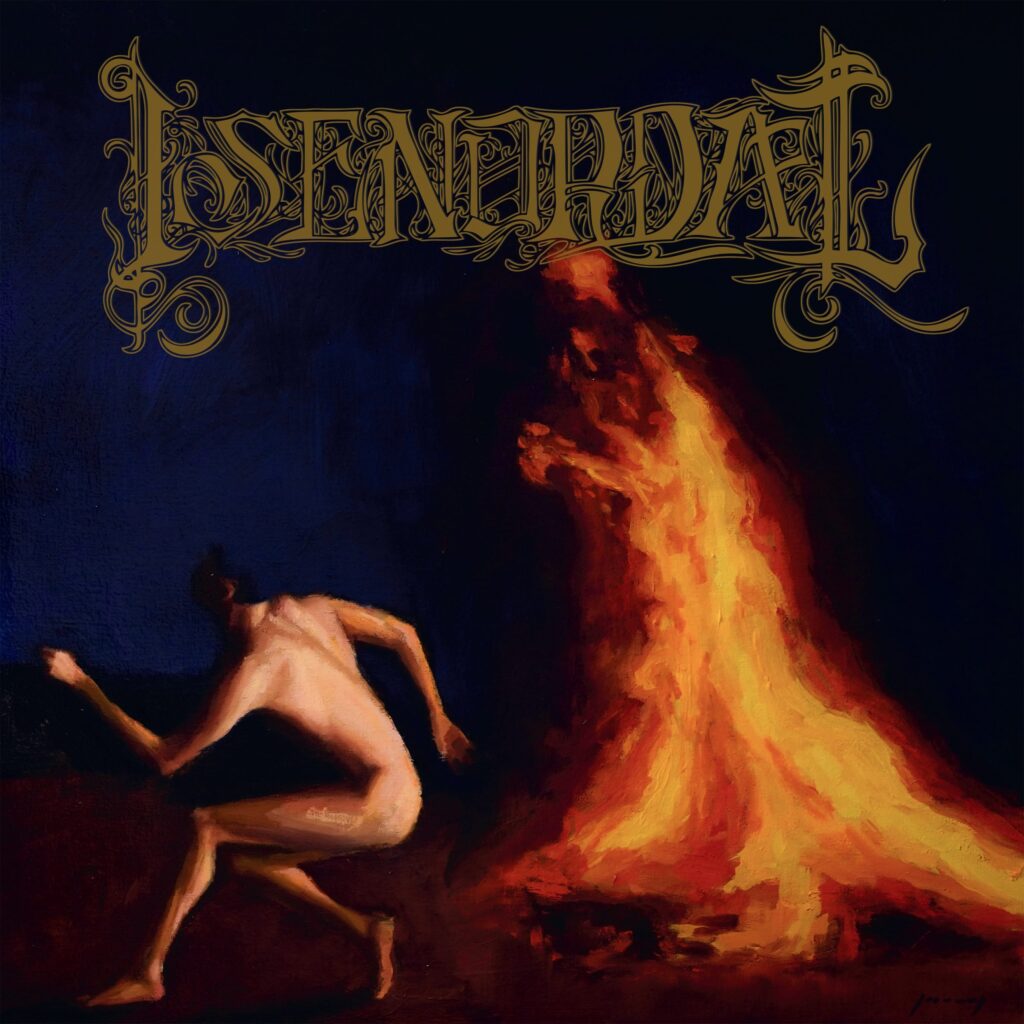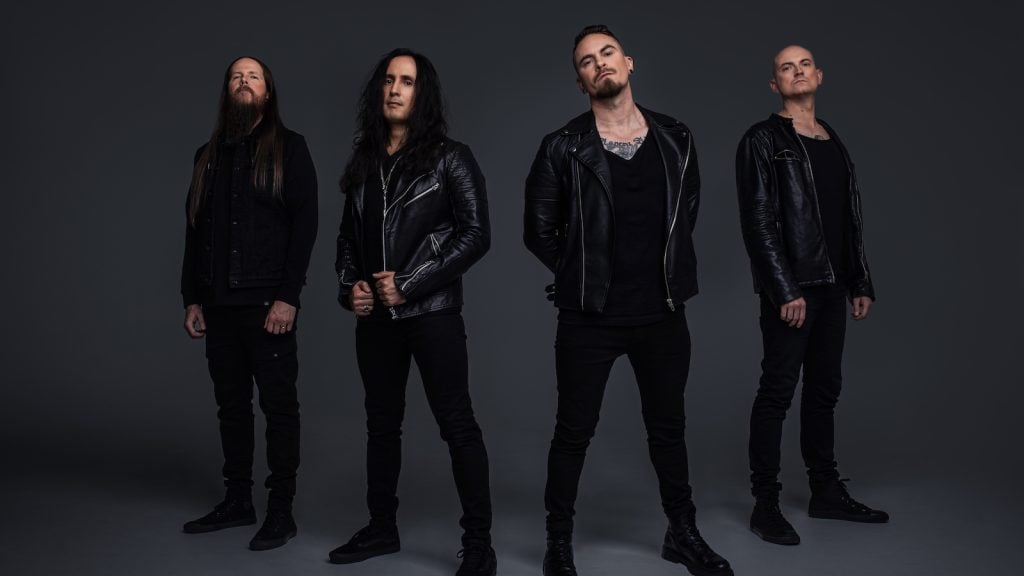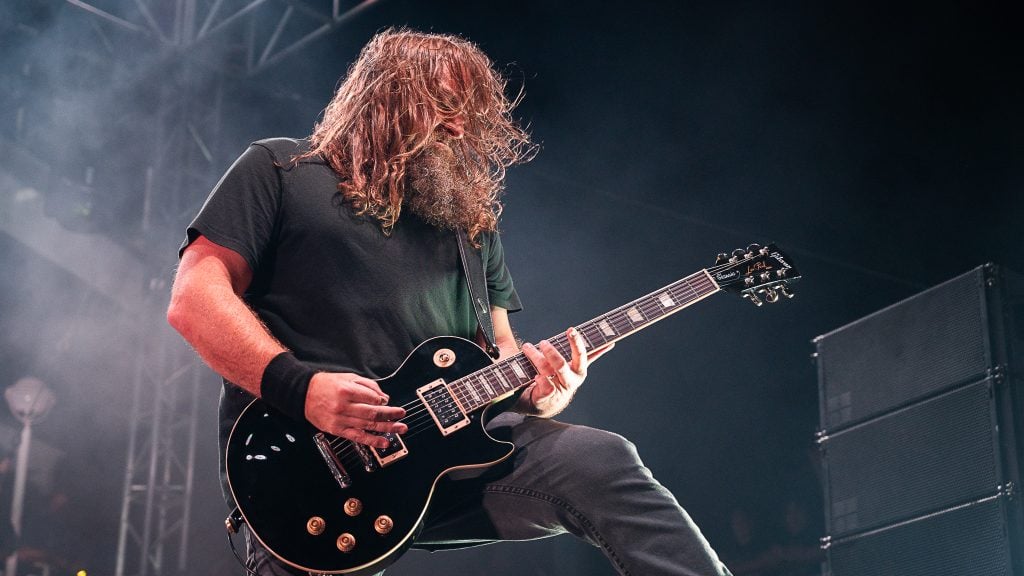
Album Review: ISENORDAL Requiem For Eirênê

To avoid harping on the “remember when music sounded like it did before now?” mantra, suffice it to say that it stands out when a band like Isenordal conjures the primordial power of a genre while keeping things fresh. In an age where making a clean, faux-dramatic atmosphere is easier than ever, this Seattle band’s approach to folk-ish doom is akin to that of Ulver‘s debut Bergtatt in that its lack of finesse actively serves its beauty. To this effect, Requiem for Eirênê draws a compelling balance between the emotive hexes of neofolk with the crushing elegies of gothic doom metal. The album’s appeal to fans of lethargic melancholy goes without saying, taken above and beyond by Isenordal‘s commitment to vibrant, raw energy.
Fans of early funeral doomers like Thergothon and Skepticism will feel right at home with the droning organs, plodding percussion, and protracted leads of “A Moment Approaches Eternity.” But the difference compared to many contemporaries becomes how relatively quickly Isenordal gets the song plugging away—not exactly in tempo, but certainly in establishing motifs and grooves worth repeating for 15 minutes. Even so, the real show stopper becomes the interplay between Kerry Hall‘s brutish growls and the harmonious singing between Eva Vonne and Lieu Wolfe. Creating a dense atmosphere through melodic interplay and sweeping dynamic shifts, Isenordal shows their sonic breadth through rustic, string-driven rituals to doom metal waltzes.
Comparing Isenordal to Ulver is particularly appropriate because albums like Bergtatt and Kveldssanger achieve beauty and heaviness not through a perfect mix and an expensive effects rig but through songwriting chops and a clear vision for how they want to sound. The metallic and folk parts of “Await Me Ultima Thule” mesh too fluidly for any real distinction between “the pretty part” and “the loud part.” Every part, from galloping riffs and torrential blast beats to bewitching melodies and layered soundscapes, exists to achieve a singular effect. The band’s neofolk element plays out like the old masters Sol Invictus or Current 93, in that they’re using folk structures for pure self-expression. This might explain why it achieves more than a gimmicky add-on to tried-and-true death doom.
[embedded content]
More than an add-on indeed, as the mid-album folk song “Requiem for Eirênê” achieves what most folk/metal bands struggle with; writing compelling music without leaning on genre combination. By any standard, “Requiem” is a worthy admission to the pantheon of neofolk, and beyond. The performances remain as heartfelt as they are pitch-perfect, showing the musicality underneath the cavernous weightiness found in “Epiphanies of Abhorrence and Futility.” Swelling organ and string embellishments remain vital as tremolo riffs crash like waves over wild blast beats and explosive double-kicks. No matter how rageful the band gets, the band finds a way to keep pensive sensitivity at the helm—not as a crutch, but as a way of elevating the already-good extreme metal with artful feeling.
Even so, the closing cut “Saturnine Apotheosis” unabashedly centers on guitar riffs out the gate, and excellent riffs at that. Interestingly, guitarist Gordon Greenwood seems to be the only member of Isenordal who doesn’t have a hand in extra vocals or information. Vonne and Wolfe respectively provide viola and keys as full-time members, while bassist Jeff King also covers flute and cello. The fact these outside elements aren’t taken care of by session players or fake MIDI plug-ins plays out tremendously throughout the album, but this final number shows how naturally the band executes their expansive sound. Each member knows exactly when they’re needed most, whether it’s beefed-up doom riffs or gloomy folk laments. As the song reaches its middle point when every member pours their all into a climax or spiraling harmonies, passionate singing and raith-like screams. Epic, yet vulnerable, Isenordal gets at the essence of great extreme doom metal.
With Requiem for Eirênê, Isenordal points back to a time during the mid-’90s when fringe artists weren’t operating under any assumptions of what they needed to sound like. Isenordal is more concerned with expressing genuine zeal than making sure they follow the rules of modern doom, black metal, or neofolk. These genre markers feel like an extension of their vision… and this vision remains awesome.




